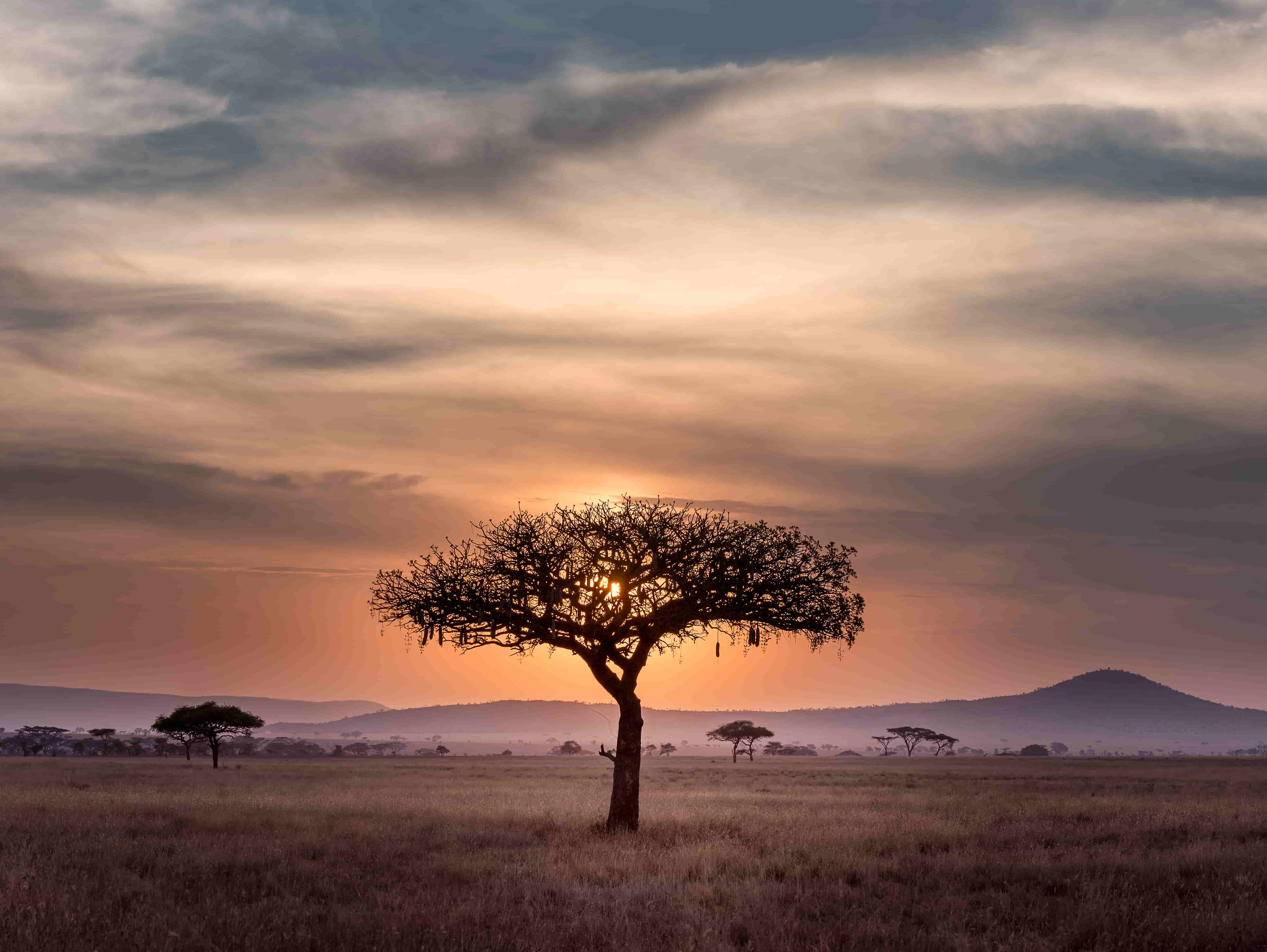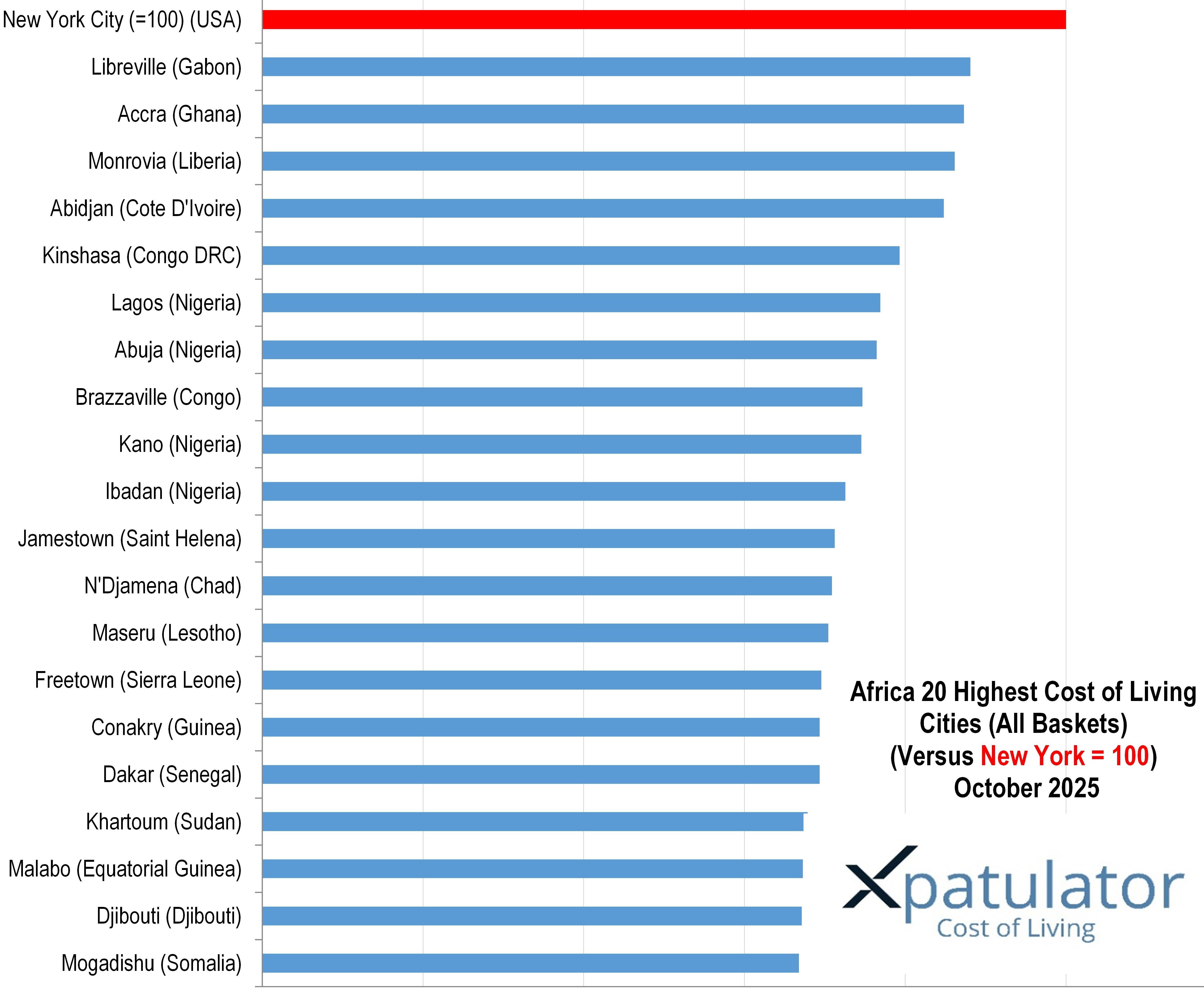
2025's Top 20 Most Expensive Cities in Africa: Cost of Living Breakdown
2025-10-01
Africa’s costliest cities are paradoxical for expatriates: despite often lacking first-world infrastructure, cities like Libreville, Accra, and Monrovia demand prices that rival the World's major capitals. Xpatulator’s October 2025 rankings reveal a stark reality—expats in Africa face sky-high prices for basic goods and services, driven by import dependency, poor local production, and persistent insecurity. The result? Africa’s expat hotspots deliver a steep price tag with precious little in return for quality, making “hardship postings” more expensive, less rewarding, and a raw deal compared to international peers.
The Cost of Living in Africa in 2025
Africa has always been a continent of contrasts: immense natural wealth alongside poverty, booming megacities next to crumbling infrastructure, and—for the globally mobile—a level of cost of living in places most would not expect. According to Xpatulator’s latest quarterly survey, the African continent presents fascinating cost of living dilemma for expatriates, with the leading cities rivalling the likes of Vienna or Barcelona but rarely offering their amenities or security.
Africa’s Highest Cost of Living Cities
The highest cost of living in Africa is in Libreville (Gabon) with an index of 88.1 (NYC = 100), trailed closely by Accra (Ghana, 87.3) and Monrovia (Liberia, 86.2). Rounding out the top five are Abidjan (Cote D'Ivoire, 84.8) and Kinshasa (Congo DRC, 79.3). This ranking is not just a list of major African capitals, but rather a roll call of cities that—despite middling infrastructure—demand first-world prices for day-to-day survival, particularly for foreign professionals.

What explains this peculiarity? In short: the “expat premium”, chronic import dependency, and often dysfunctional domestic markets.
The Drivers: Scarcity, Security, and the Expat Premium
Libreville’s top ranking is a direct result of Gabon’s heavy reliance on imports for virtually everything, from foodstuffs to basic consumer goods. With a population of barely 2 million and a government that treats its oil wealth as a private preserve, little is manufactured locally. The result: a shopping basket that is not only thinly stocked but eye-wateringly expensive, especially if you insist on Western brands or any semblance of quality. Housing compounds for expatriates, replete with generators and security, are another cost driver.
Accra, Ghana, faces similar problems: weak local production, supply chain constraints, and an expat demand for “Western-style” living that drives up costs for imported food, vehicles, and accommodation.
Monrovia, Liberia, with a long history of instability and underdevelopment means local production is minimal and safety concerns high. Imported food, transport and secure accommodation push prices up. The situation is made worse by chronic underinvestment in utilities, with private generators and water tanks standard for the well-heeled.
Kinshasa and Lagos—two of Africa’s largest and most chaotic cities—are shaped by sheer scale and a dysfunctional market. Kinshasa suffers from Congo’s logistical nightmare, where river ferries and bribes are part of any supply chain. Lagos has the paradox of being the commercial heart of West Africa and yet has some of the continent’s most expensive imported goods and luxury housing, thanks to decades of underinvestment in local industry and chronic currency volatility.
Regional Patterns: West and Central Africa Dominate
A striking trend in Xpatulator’s rankings is the dominance of West and Central Africa. This is no accident. These are regions where oil and mineral wealth coexist with political instability, poor infrastructure, and—crucially—where almost everything consumed by expats is flown or shipped in at great expense. All face similar problems: weak local production, supply chain constraints, and an expat demand for “Western-style” living that drives up costs for imported food, vehicles, and accommodation.
The Outliers: Southern and Eastern Africa
Further down the list, we find cities like Maseru (Lesotho), Djibouti (Djibouti), and Mogadishu (Somalia). Djibouti is a critical military and trading port, so supply is less of an issue, but prices are high due to its status as a logistics hub with little local production.
Living the Expat Life in Africa
For anyone contemplating a move to one of Africa’s most expensive cities, these rankings are sobering. Compared to global hubs, African cities offer little value for money: services are patchy, healthcare and education are best described as “variable”, and security is a perennial concern. While a New York, London or even a Zurich offers a world-class lifestyle in exchange for its price tag, an African posting offers none of these guarantees.
What is especially galling is the gap between headline cost and underlying quality. In Libreville or Monrovia, you will pay close to New York prices for electricity that cuts out several times a week, food that is half the quality, and schools that cater almost exclusively to foreign children. In Kinshasa or Lagos, traffic gridlock, pollution, and a volatile security environment are part of daily life.
Relative to the Rest of the World
The African cost of living, as measured here, is almost entirely an expatriate phenomenon. With New York set at 100, Africa’s priciest city, Libreville, sits at 88.1, approximately 12% cheaper on paper than New York City, but vastly more expensive in terms of quality-adjusted cost. This is not a market-driven cost but a combination of scarcity, inefficiency and the unique challenges of expatriate life.
In Conclusion: Balancing Cost of Living, Hardship and Remuneration
For multinationals and international NGOs, the challenge is clear: African postings must be priced generously, with hardship premiums and allowances built in. The real question, though, is how much longer these structural imbalances will persist. Until local production, infrastructure, and governance improve, Africa’s cities will continue to be expensive, but not luxurious, a distinction that does little for either their image or their inhabitants.
Use Xpatulator’s Cost of Living Calculators and Tools for informed decision-making about the cost of living and the salary / allowance / assignment package required to maintain the current standard of living.